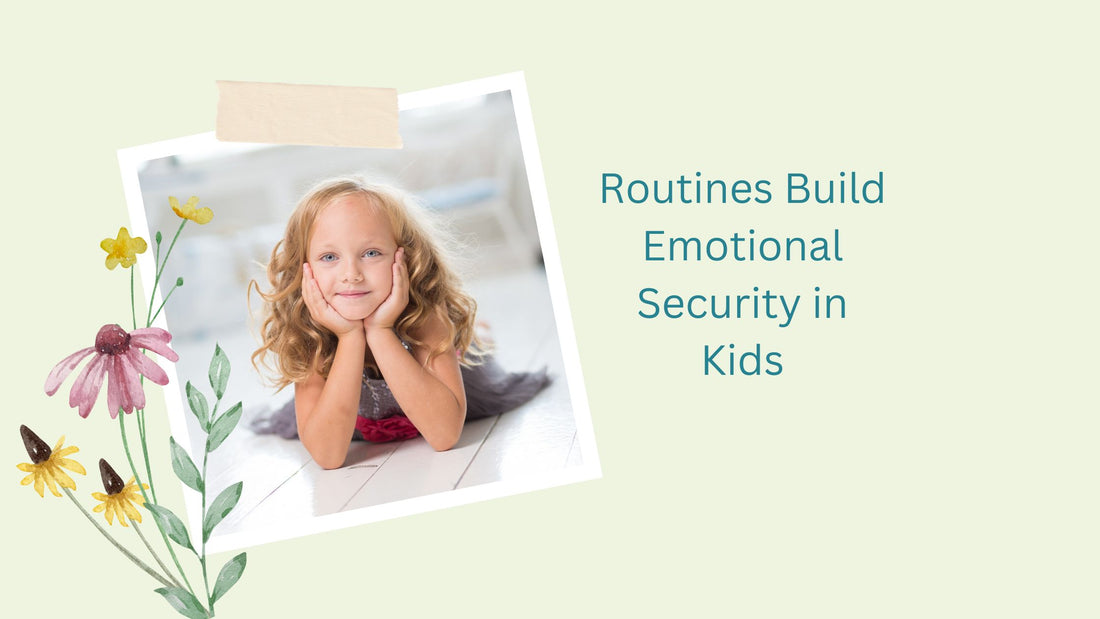
The Power of Predictability: How Routines Build Emotional Security for Kids
Share
As parents, we want to provide our children with the tools and environment they need to grow into confident, secure individuals. One of the simplest yet most impactful ways to support their emotional well-being is by establishing predictable routines. Routines are more than just schedules; they are the daily rituals that create a sense of stability, helping kids feel safe and grounded in an ever-changing world.
Why Predictability Matters
Life is full of surprises, and while spontaneity has its charm, children thrive on predictability. Knowing what to expect helps them feel in control and reduces anxiety. For kids, especially younger ones, the world can often feel chaotic. A consistent routine provides a reassuring framework, showing them that while the world outside may be uncertain, their home life remains steady and secure.
Emotional Security Through Routines
When kids know what to expect, they’re better able to regulate their emotions. Transitions—whether it’s waking up, going to school, or winding down for bed—can be stressful, but routines help ease these moments. For instance, a bedtime routine that includes a bath, a story, and a goodnight hug creates a comforting ritual that signals it’s time to relax and sleep. Over time, these predictable patterns help children feel emotionally secure.
The Role of Daily Rituals
Daily rituals add a layer of meaning and connection to routines. These can be as simple as a morning greeting, a family dinner where everyone shares a “high” and “low” of their day, or a special handshake before school. Such rituals not only ground children but also strengthen family bonds and create memories they will cherish.
Practical Tips for Establishing Routines
- Start Small: Begin by focusing on key parts of the day, such as mornings, meal times, and bedtime. Gradually build routines that work for your family’s needs.
- Involve Your Kids: Engage your children in creating routines. Let them pick a bedtime story or choose an activity for family time. This empowers them and makes them more likely to follow through.
- Be Consistent: Consistency is key. While flexibility is important for unexpected events, try to stick to your routine as much as possible to maintain its benefits.
- Use Visuals: For younger children, a visual schedule can be helpful. Pictures of activities like brushing teeth, eating breakfast, or reading a book can make routines fun and easy to follow.
- Celebrate Success: Praise your child when they stick to the routine. Positive reinforcement helps them feel proud and motivated.
Routines for Challenging Times
Routines are especially valuable during periods of change or stress, such as starting a new school, moving, or experiencing a family challenge. They offer a comforting constant when everything else feels uncertain, helping kids navigate difficult emotions and situations.
The Long-Term Benefits
Beyond emotional security, routines teach kids essential life skills, including time management, responsibility, and self-discipline. As they grow, the foundation of predictability you’ve built will help them adapt to new routines and challenges with confidence.
Predictability is a powerful gift you can offer your child. By establishing and maintaining routines, you’re not only making your daily life smoother but also providing your child with the emotional security they need to thrive. Embrace the power of routines and watch your child flourish, feeling grounded and ready to face the world with confidence.
